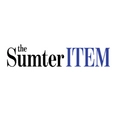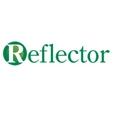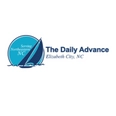Want to be seen here?
Connect your company to the marketplace for free.
Time for a display campaign? Ocast has gathered thousands of solutions in one place so you can get started quickly. Fill in the form and start receiving offers for campaign proposals.

The Charlotte Observer has continued throughout its years of service to Charlotte and the surrounding communities, to accurately reflect the region and what matters to the local residents. The Observe...

The Spartanburg Herald-Journal is a daily newspaper, the primary newspaper for Spartanburg, South Carolina, United States.The origins of the paper lie with The Spartan, a weekly paper reportedly first...

The Island Packet serves southern Beaufort County, highlighted by Hilton Head Island, a popular tourist area known for its lovely beaches and premier golf and tennis destinations, and Bluffton, one of...

The Greenville News is a daily morning newspaper published in Greenville, South Carolina. After The State in Columbia and Charleston's The Post and Courier, it is the third largest paper in South Caro...

The Herald is the leading source of local news, information and advertising for residents in the greater Rock Hill, S.C., area, which includes York, Chester, and parts of Lancaster counties. York Coun...

The Anderson Independent-Mail started in 1899 when G. Pierce Brown began publishing the afternoon Anderson Daily Mail. Later, Wilton E. Hall, who had started the Morning Anderson Independent, bought t...

The Island Packet serves southern Beaufort County, highlighted by Hilton Head Island, a popular tourist area known for its lovely beaches and premier golf and tennis destinations, and Bluffton, one of...

Founded by Hubert Graham Osteen, The Sumter Item has been serving Sumter County and the surrounding area in South Carolina since 1894. The Item, as it's commonly referred to, publishes a newspaper fiv...

The Post and Courier, the South’s oldest daily newspaper, traces its roots to The Courier, founded in 1803, and The Evening Post, founded in 1894. In 1926, the two newspapers were drawn closer togethe...

The Morning News is a daily newspaper with a circulation of about 35,000, based in Florence, South Carolina. It is owned by Lee Enterprises.It was founded as the Farmers' Friend in 1887, and was part ...

The State Media Company’s logo incorporates the state tree, the Palmetto, chosen when the company was founded, as a symbol of the commitment to the state of South Carolina. That commitment is upheld b...

The Sun News serves the high-growth South Carolina coastal counties of Horry and Georgetown. Locals know the area as "The Grand Strand," defined by 60 miles of sandy beaches from the border of North C...

For more than 130 years, The Laurinburg Exchange has served the people of Scotland County as their primary source of news, as well as a guide to satisfy the community’s appetite for goods and services...

The Mountaineer is a newspaper based in Waynesville, North Carolina. The newspaper is owned by The Mountaineer Publishing Company. Our first online publication, MPC Online, was launched in the mid 90’...

The Asheville Citizen-Times is an American, English-language daily newspaper of Asheville, North Carolina. It was formed in 1991 as a result of a merger of the Morning Asheville Citizen and the Aftern...

The Courier-Tribune is the daily newspaper of Asheboro, North Carolina and the surrounding county of Randolph County, North Carolina. It is not the only daily newspaper in Randolph County, North Carol...

The Daily Record is one of only a handful of newspapers locally owned and operated in North Carolina. It started with one man's plan to produce the best community-focused newspaper in the state (once ...

The Daily Reflector has been a vital part of the life of Greenville, Pitt County, and eastern North Carolina for more than a century. The company was founded in 1882 by David Jordan Whichard and Julia...

The Dispatch is an American, English language daily newspaper published in Lexington, North Carolina. The newspaper is published Tuesday through Saturday with no Sunday or Monday editions.The Dispatc...

The Daily Advance is published in Elizabeth City, N.C. and serves an area of five mostly rural counties in the northeastern corner of North Carolina. They include Currituck, Camden, Pasquotank, Perqui...
Display advertising, often referred to as banner advertising, involves visual ads placed on various websites, in contrast to text-based search ads that appear in search results on platforms like Google.
While search ads are focused on direct response, display ads aim at building brand awareness through engaging visual content like images or animations. Display advertising also enables retargeting, where ads are redirected to users who have previously visited your website, helping to keep the brand fresh in mind.
With opportunities to measure campaign performance and customize design and target audience, display advertising offers an attractive strategy for brands looking to enhance their online presence and effectively engage their target audiences.
The most effective formats and sizes for display ads vary depending on the platform and target audience, but here are some popular options:
Leaderboard (728x90 px): Positioned at the top of the page, this ad size captures visitors' attention right away.
Medium Rectangle (300x250 px): This size is flexible and can be placed in sidebars or embedded within content.
Large Rectangle (336x280 px): A larger variant of the Medium Rectangle that offers more visible space.
Wide Skyscraper (160x600 px): Often used in sidebars, offering a long, vertical ad space.
Mobile Leaderboard (320x50 px): Optimized for mobile devices and often placed at the top or bottom of the screen.
Consider adhering to industry standards and adapting ad format and size to the specific platform and your target audience. However, the emphasis should be on having well-thought-out content that engages and is relevant to your target audience with clear "Call to Actions" (CTA) to encourage clicks and conversions.
Measuring the effectiveness of your display advertising campaigns is crucial for evaluating the results of your campaign and for fine-tuning future marketing strategies. A first step could be to look over the Click-Through Rate (CTR), which represents the number of clicks your ad receives per view, providing an indication of the ad's engagement level. It is also important to track the conversion rate, which shows how many clicks are converted into desired actions such as sales or leads. Cost Per Conversion is another key indicator that helps you understand the cost-effectiveness of your campaign.
It may also be good to look at the impression rate, that is, how many times the ad has actually reached out and been displayed for brand-building purposes.
One of the major advantages of this type of advertising is its ability for audience targeting, where ads can be directed based on demographics, behavior, and retargeting, enabling a more personalized advertising experience. Moreover, with the use of various analytical tools, it becomes easy to track and measure the campaign's effectiveness by observing data on clicks, conversions, and views, which provides valuable insights.
However, display advertising also has its downsides. Ad blocking is one of the major challenges, where users can choose to block display ads, which in turn reduces the reach and effectiveness of your campaign. Ad fatigue is another downside, where ads that are shown too often can become irritating for the users, leading to decreased engagement and negative brand associations. Despite the ability for audience targeting, audience dilution can be a challenge if precise targeting is not used, which potentially leads to wasted marketing expenses. Additionally, the cost of display advertising can become significant, especially if the campaign is not well optimized to achieve desired results.
The cost of display advertising can vary based on several factors such as website, ad format, and target audience. Besides that, there are different pricing structures one can base on to adjust the cost according to the goal at hand. Below we list different pricing options for display advertising.
CPM (Cost Per Mille or Cost Per Thousand Impressions):
The price for 1000 views of your ad.
Often used for campaigns aimed at increasing brand awareness.
CPC (Cost Per Click):
The price you pay for each click your ad receives.
Used when the goal is to drive traffic to a website or increase interaction.
CPA (Cost Per Acquisition or Cost Per Action):
The price for each specific action or execution, such as a purchase or lead generation, that arises via your ad.
Used when the goal is conversions rather than just views or clicks.
CPL (Cost Per Lead):
The price for each lead generated through your ad.
Used in B2B marketing or for products/services with longer sales cycles.
CPV (Cost Per View):
The price for each viewing of a video ad.
Often used for video-based advertising campaigns.
Each pricing structure suits different goals and campaign types, and choosing the right pricing structure can help maximize the ROI for your display campaign.
Connect your company to the marketplace for free.
No commitments.